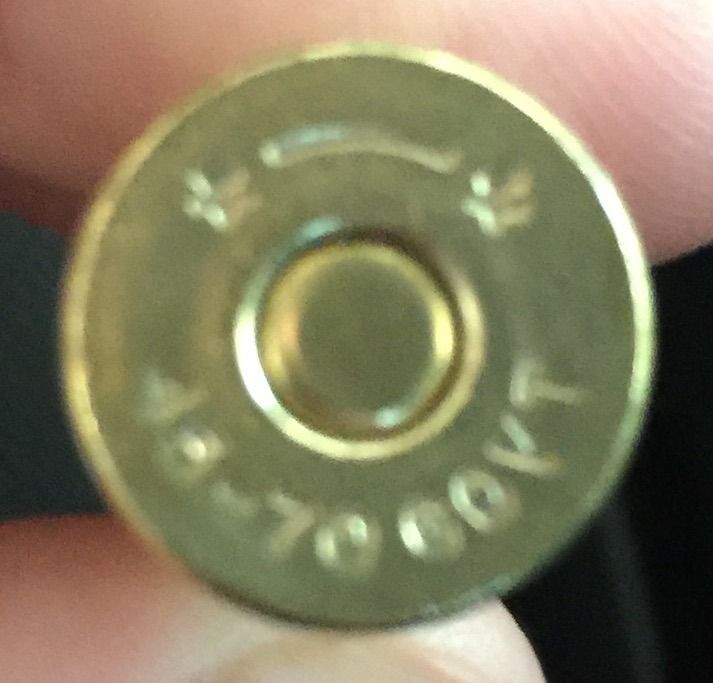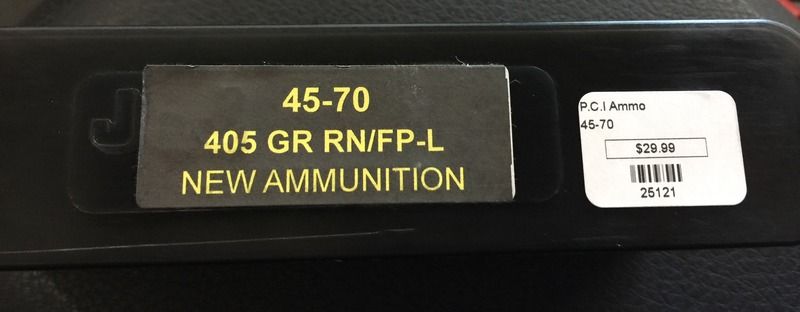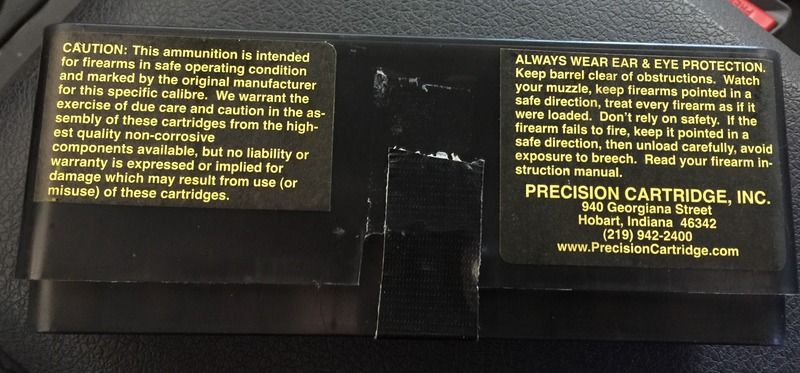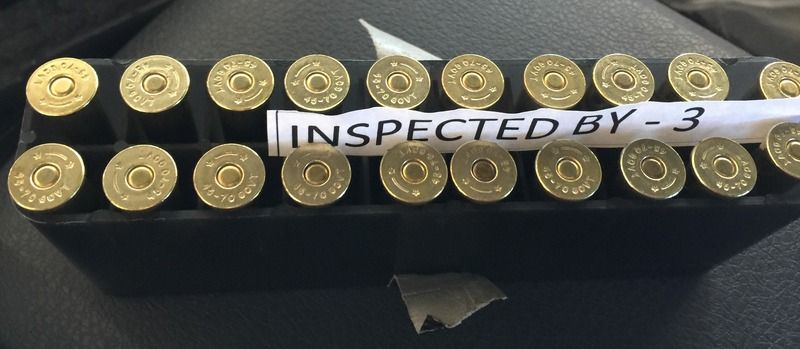snowman748
New member
I wasn't sure where to post this so if it's in the wrong place I'm sorry...
today at lunch I picked up some 45-70 government ammo from a local gun shop that only had two boxes on their shelves...it was labeled as P.C.I. but came in what looks like a J&J ammo box. the ammo was only $30 a box for 20 405 grain loads (compared to $50 a box of Remington at the local Academy) so I picked up both boxes. When I got to the car and untaped the boxes to see the ammo I noticed it was all Starline brass. The bullet itself looks like copper washed lead to me but I could be wrong. No telling how long it's been on the shelf because it was sandwiched between some 45-90 and I think 44-90?
anyways I looked up the brass and it's about $20 alone, and the J&J boxes run about $4 a piece...
my question is did I get a good deal on some old ammo or should I be worried and not shoot the stuff? If I shoot it, it will go through a brand new Marlin 1895 GBL lever gun...
to be 100% honest the boxes are what sold me...the ability to shoot the ammo and have nice boxes to store the spent cases in till I get around to reload seemed cool...
here are some pictures of what I got...





today at lunch I picked up some 45-70 government ammo from a local gun shop that only had two boxes on their shelves...it was labeled as P.C.I. but came in what looks like a J&J ammo box. the ammo was only $30 a box for 20 405 grain loads (compared to $50 a box of Remington at the local Academy) so I picked up both boxes. When I got to the car and untaped the boxes to see the ammo I noticed it was all Starline brass. The bullet itself looks like copper washed lead to me but I could be wrong. No telling how long it's been on the shelf because it was sandwiched between some 45-90 and I think 44-90?
anyways I looked up the brass and it's about $20 alone, and the J&J boxes run about $4 a piece...
my question is did I get a good deal on some old ammo or should I be worried and not shoot the stuff? If I shoot it, it will go through a brand new Marlin 1895 GBL lever gun...
to be 100% honest the boxes are what sold me...the ability to shoot the ammo and have nice boxes to store the spent cases in till I get around to reload seemed cool...
here are some pictures of what I got...





